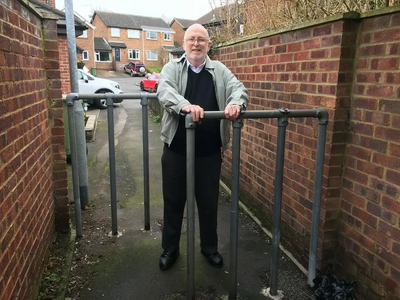Liberal Democrats call on Council to improve pedestrian equality

On the 22nd January Milton Keynes Liberal Democrats put forward a motion to Milton Keynes Council calling for an end to inequality in pedestrian accessibility.
The motion called for the Cabinet to introduce a 5 year programme to install dropped kerbs at all road crossings, and to remove footpath chicanes (staggered barriers that restrict access) wherever it is safe to do so.
The motion also called for the Cabinet to take whatever action is necessary to ensure that motorists do not park alongside a dropped kerb.
It is estimated that over 12,000 wheelchair and mobility scooter users, as well as 7,000 pushchair users, are inconvenienced by inaccessible staggered barriers and a lack of dropped kerbs throughout Milton Keynes.
Councillor Paul Alexander, who brought forward the motion, said: "For many people who use mobility scooters or wheelchairs, or who push children in buggies, getting around the borough of Milton Keynes is not easy. Staggered barriers are simply not wide enough to get through, and in some areas dropped kerbs are only fitted at one end of the footpath and not the other."
Councillor Alexander concluded: "Milton Keynes needs to be doing everything it can to ensure that people with disabilities can access the same facilities as able bodied people."The motion passed with full cross-party support.
The full motion can be read on the Milton Keynes Council website.
